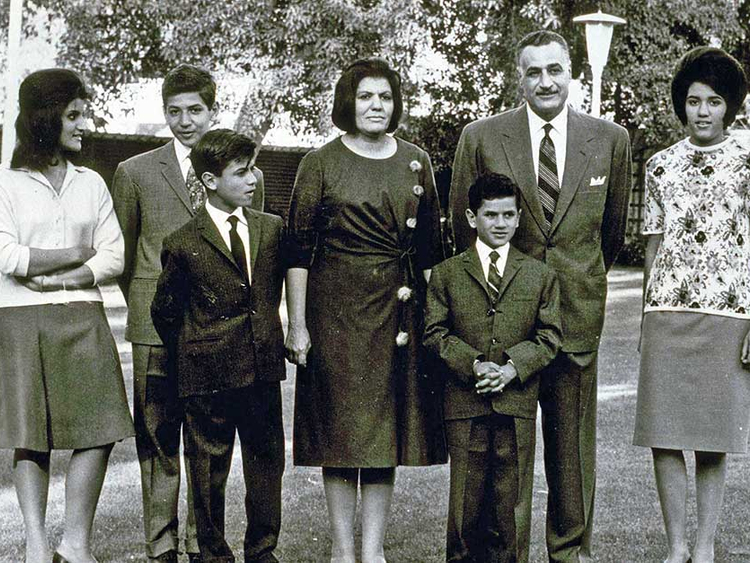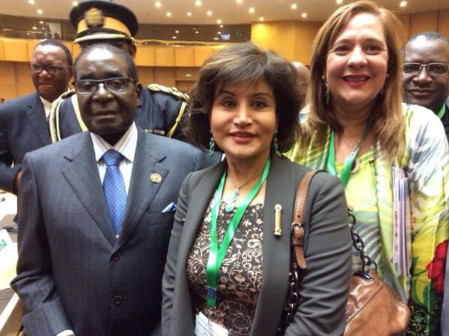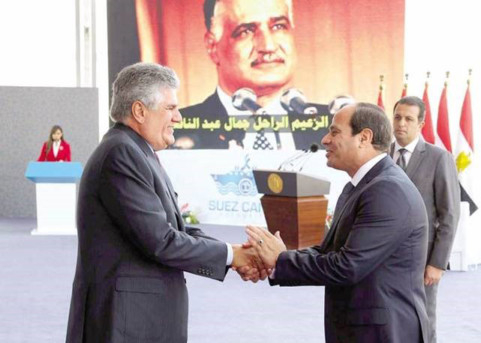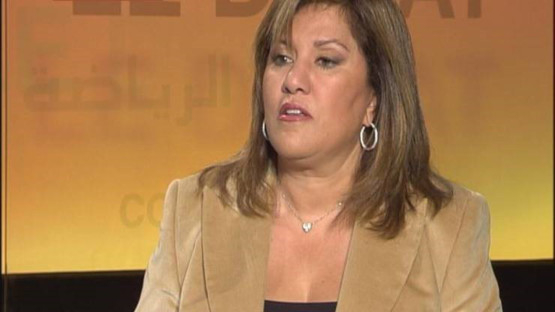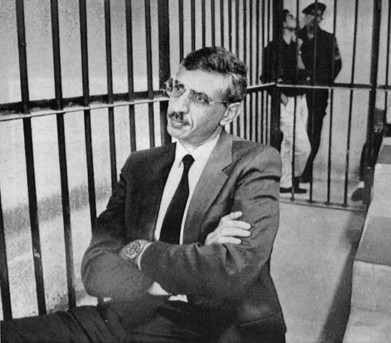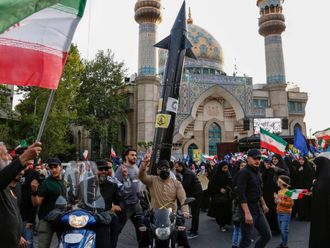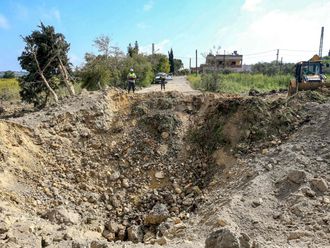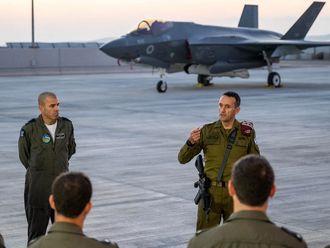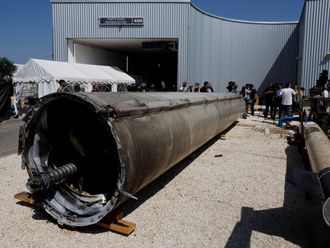Damascus: One year after Jamal Abdul Nasser’s death, TIME magazine ran a story saying that his successor Anwar Al Sadat had paid a visit to his family at their home in Manshiet Al Bakri in eastern Cairo.
Sadat came asking for a bulletproof automobile that Nasser had left behind, a request that infuriated the former president’s eldest child, then 22-year old Khalid.
He stomped to the garage, poured gasoline on the car, and set it ablaze, preferring to destroy it rather than give it to Sadat.
Since then, much has changed for the Nasser family.
The President’s widow Tahia Kazem—47 at the time of her husband’s death—refused to remarry and devoted herself to raising her five children.
The Egyptian Parliament allocated the family home in Manshiet Al Bakri to her and it is where she lived until her death in 1990.
It was subsequently transformed into a museum honouring Nasser’s legacy and opened by President Abdul Fattah Al Sissi in 2016.
She was given a state pension of 500 EP, which was raised to 950 EP, and refused to leave Egypt—even for a vacation.
Only once did she agree to travel to Spain with one of her daughters, and on the fourth day, wept and asked to return home.
The young Khalid (1949-2011) was an Arab nationalist at heart, just like his father.
At his father’s funeral, he threw himself on Nasser’s coffin—a scene that brought the tears to many eyes in the Arab world.
He went on to study civil engineering at Cairo University and Cambridge and became a career academic in Egypt.
However, in the late 1980s, he was accused of conspiring against the Camp David Accords, being a member of a secret underground cell plotting to overthrow the Egyptian Government, and the murder of three Israeli diplomats and one American in 1987.
Known as the “Egyptian Revolution,” it was reportedly funded by Libya and commanded by Mohammad Nour Al Deen, a former intelligence officer who had served in London under Nasser and who left his job after Anwar Al Sadat’s 1977 visit to Occupied Jerusalem. He was eventually arrested, tried, and sentenced to 25 years in jail, from which he spent 11 before his death while Khalid fled to Yugoslavia, where he lived for three years as a guest of its government, given the personal friendship between his father and President Josip Tito.
He subsequently returned to Cairo, attending 10 months out of his 29-month trial, where he was accused of murder and faced the death penalty.
He was subsequently declared innocent of all charges in 1990 and died after undergoing digestive surgery in September 2011, months after the overthrow of President Hosni Mubarak.
His funeral was attended by Field Marshal Hussain Tantawi, the military strongman of Egypt back then.
In one of his last public appearances, he joined angry young Egyptians at Tahrir Square, calling for “downfall of the regime.”
The Telegraph wrote that his participation “was seen as helping to give the revolution a posthumous stamp of approval from an iconic Arab hero,” in reference of course to his late father.
Khalid married Dania Fahmy, the daughter of Sameeh Fahmi, a former oil minister under Mubarak, who bore him three children: Jamal, Tahia, and Majida.
Named after her grandmother, Tahia is currently an assistant professor of Comparative Literature at the American University of Cairo (AUB) who helped edit Tahia Kazem’s memoirs, penned in 1973 and published many years after her death in Arabic and English. Its Arabic name was “Zikrayat Maahu” while in English it billed as “Nasser My Husband.”
Nasser’s second son Abdul Hamid was born in 1951, one year before his father staged a coup in Cairo, overthrowing the Egyptian monarchy.
More on Jamal Abdul Nasser:
• Egyptians remember ‘father of the poor’
• Jamal Abdul Nasser left behind immortal legacy
• Timeline: Abdul Nasser’s life in short
• Syrian politicians recall mass adoration of Nasser
He studied at the Naval Academy in Alexandria and joined the Egyptian Foreign Ministry and served briefly in London before parting ways with government office and devoting himself to a contracting business set up by his younger brother Abdul Hakim (born in 1956).
The third of Nasser’s male children, Abdul Hakim studied engineering as well and was named after his father’s longtime friend Abdul Hakim Amer, the commander of Egyptian troops during the 1967 War.
Like his older brother Khalid he too was critical of Mubarak and of the Muslim Brotherhood regime that succeeded him, taking part in massive demonstrators that called for the downfall of then-President Mohammad Mursi in 2013.
Taking the stage in Tahrir Square amidst a cheering crowd, he said: “The people of Egypt now know that my father was right when he said that they could not trust the Muslim Brotherhood.”
Speaking on behalf of the family, he expressed full support for Abdul Fattah Al Sissi’s presidency, saying that Egypt needed such kind of leadership.
People whispered that while Khalid had some of Nasser’s looks, Abdul Hakim had his warm smile and deep commanding voice, endeared to millions across the Arab World.
Nasser’s eldest daughter Huda (born in 1946) was very close to her father and joined his office as personal secretary in 1969, one year before his death.
She studied political science at AUC, where she met her future husband Hatim Sadek during basketball practice, marrying him and giving birth to the President’s first grandchild, Hala Sadek.
She worked at the mass circulation daily Al Ahram, headed at the time by her father’s trusted friend Mohammad Hassanein Heikal, but resigned after he left office, objecting to an editorial that was critical of Nasser, published on the pages of the once pro-Nasser newspaper.
She presently teaches at AUC and works day and night on preserving her father’s legacy through documenting his speeches, photos, correspondences, and many achievements, setting up the Nasser Library.
Muna Abdul Nasser led a more controversial life, due to her marriage to Egyptian billionaire Ashraf Marwan, the son of an army general who was named by General Eli Zeira, the head of Israeli intelligence during the October War of 1973, as an “Israeli spy.”
The Israelis claimed that he had been “the best source we ever had” and operated under the code name, “The Angle.”
They met as students in Cairo back in August 1965—he was a chemist, tall and handsome, who loved her dearly. She worked at a Cairo-based publishing house while he was appointed special envoy for President Nasser, carrying out diplomatic visits to Saudi Arabia and Libya. Mossad claims that was he was recruited in 1970, when working under President Sadat. Nasser’s successor kept Marwan close by his side for years, using him to thwart accusations that he was being cruel to Nasser’s family.
Marwan died in mysterious circumstances during the summer of 2007, when he fell off the 5th floor balcony of his London mansion, a stone’s throw from Trafalgar Square.
Muna claimed that he suffered from neuropathy in his feet and that he couldn’t lift his legs higher than a few inches without help.
“If he was supposed to have climbed over a meter-high balcony rail, there would have been scuff marks” she noted, claiming that he had been thrown off the balcony, saying that it was a planned murder than suicide.
She claimed that he was working for Egyptian intelligence and feeding false information to the Israelis, denying accusations that he worked for Mossad, saying: “My husband was a hero who served his country. He did what was asked of him to perfection.”
Their son Jamal Marwan owns the popular “Melody Channel” in Egypt.


